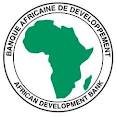The Minister of National Planning Commission, Dr Shamsuddeen Usman, has said that Nigeria will require 2.9 trillion dollars in the next 30 years to bridge its huge infrastructure gap.
Usman said this on Monday in Abuja at a high profile policy dialogue on “ Infrastructure and Structural Transformation in Nigeria’’ organised by the African Development Bank (AFDB). He said the country was well aware of its inadequacies in terms of infrastructure “which is why it has started to address some of them, especially in the areas of power, transport and ICT sector’’. Usman explained that a National Integrated Infrastructure Master Plan (NIIMP) was formulated to address the inadequacies and integrate existing infrastructure plans and projects of the Federal Government into one.
“The AFDB has been working closely with us in our economic transformation, especially in the development of the NIIMP. This master plan is a long term 30-year plan, covering from 2014 to 2043. The 30-year master plan is phased into three 10-year strategic plans, and six 5-year operational plans. The NIIMP will require an estimated 2.9 trillion U.S. dollars to close Nigeria’s huge infrastructure gap in the next 30-years, 52 per cent of which will come from the treasury, while the private sector is expected to cover the balance of 48 per cent.
“The master plan will also put in place enablers that will attract private sector investment to the infrastructure sector,’’ he said. Usman said the plan would also create job opportunities, especially for engineers “who will be involved in the design and construction of new roads, power, housing, rails and airports projects’’. Dr Ousmane Dore, the Resident Representative of AFDB, Nigeria Field Office, said although Nigeria’s economy had improved in recent years, a transformation plan to enhance its infrastructure sector, still remained. Dore said the bank had come up with an infrastructure action plan for Nigeria that would promote infrastructure development.
“In recognition of the work which needs to be done, it is my hope that this dialogue will provide the platform for policy makers and the private sector to reflect on these issues for practical solutions,’’ he said. The Vice President and Chief Economist of AFDB, Prof. Mthuli Ncube, said the bank was concerned about transforming Africa by aiding it to make judicious use of its bountiful natural resources. Africa is transforming but we want it to transform faster. In 2000, the GDP of Africa was about 600 billion dollars and today it stands at over two trillion dollars.
“ However, it still has challenges of youth employment and inequalities. We recognise Nigeria’s effort to address the issues, in spite of its large population. We believe that in 30 years to 40 years, it will succeed in doing so,’’ he said.

